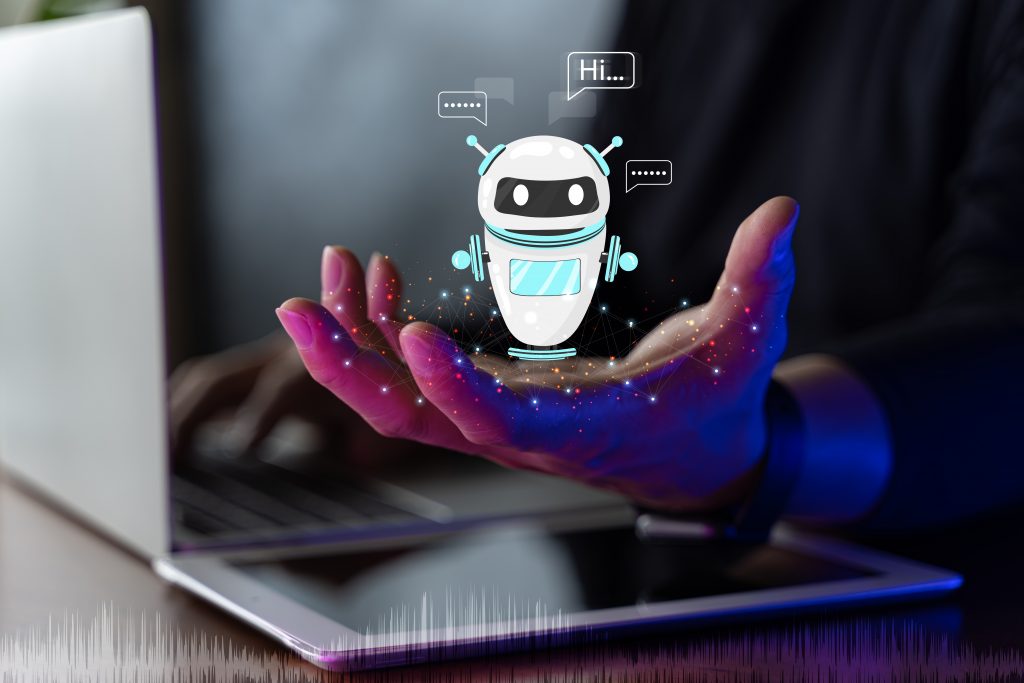Artificial intelligence is everywhere: in our phones, in our cars, and increasingly at the very heart of businesses. Where it stands out the most is in the form of AI chatbots, capable not only of holding conversations but also of acting autonomously. These next-generation assistants no longer simply answer questions; they execute complex tasks, solve problems, and significantly enhance the user experience.
Let’s explore the impact of AI chatbots in everyday business life.
From Traditional Chatbots to AI Chatbots: A Silent Transformation
The first chatbots were often limited to rigid scenarios and scripts, similar to disguised FAQs, generating more frustration than help. But everything changed with the arrival of AI chatbots, which can understand natural language, learn from interactions, and adapt to the context of conversations.
These solutions are no longer just simple messaging robots. They have become true autonomous agents, integrated into company systems and capable of managing entire business processes. From booking and order tracking to tech support and recruitment, these agents combine artificial intelligence, machine learning, and smart use of data to carry out their missions.
1. Automating to Serve Better: The Power of AI Agents in Business
A 24/7 Customer Service
One of the most obvious advantages of an AI agent is its permanent availability. Whether it’s 2 a.m. or a public holiday, it remains active and ready to respond instantly. This translates into a greatly improved user experience, with no long waits or frustration.
Lower Operational Costs
Automating repetitive requests such as password resets, order tracking, or appointment scheduling frees up human teams to focus on more complex, high-value cases. As a result, companies save substantial costs and also see a rise in productivity.
Personalized and Contextualized Interactions
A well-trained AI agent doesn’t just respond—it analyzes, anticipates, and adapts. Using customer data, it can personalize its answers, suggest relevant recommendations, or even detect signs of dissatisfaction and escalate to a human agent if necessary. This is a powerful tool for customer loyalty.
2. Concrete Examples of AI Agents at Work
In Human Resources
AI chatbots are used for “automated onboarding.” Many large companies such as L’Oréal and Orange use AI agents to support new employees. They answer administrative questions, introduce internal tools, and facilitate integration—all without direct human intervention.
In E-commerce
They are used throughout the sales process and in customer support. Platforms like Cdiscount and La Redoute rely on AI agents to guide customers in their purchases, suggest complementary products, and manage returns. The result: smoother customer journeys and higher conversion rates.
In IT Departments
Chatbots serve as automated tech support. Some IT teams integrate AI agents capable of resolving simple issues such as access resets, common bugs, or routing requests to the right service. This results in significant time savings for both users and support staff.
A Deep Transformation, Not Just a Trend
The rise of AI autonomous agents is not a passing trend, but a profound transformation of work methods and customer relations. The AI chatbot is on its way to becoming a cornerstone of automation—a key to improving user experience and optimizing internal performance.
The good news? These technologies are no longer reserved for digital giants. SMEs and startups alike can now integrate AI agents tailored to their needs.
Explore our autonomous agent solutions today to transform your interactions and boost your efficiency!






